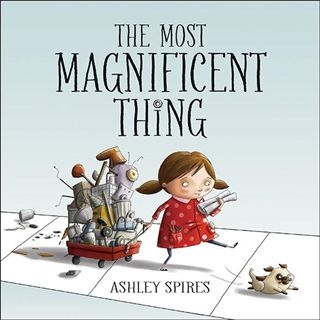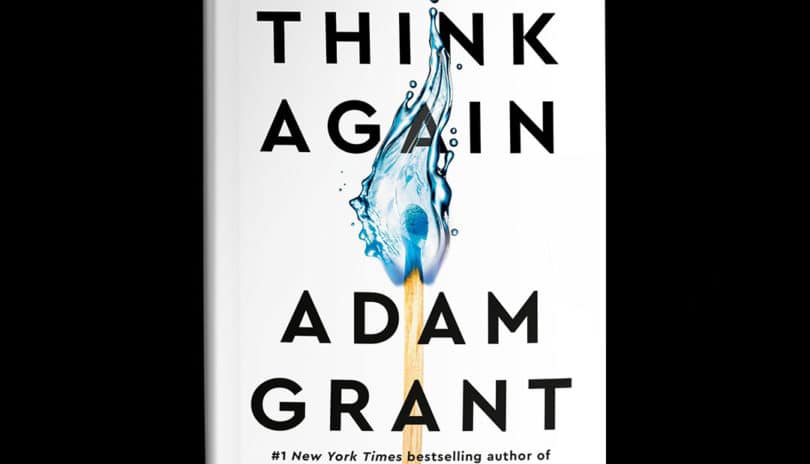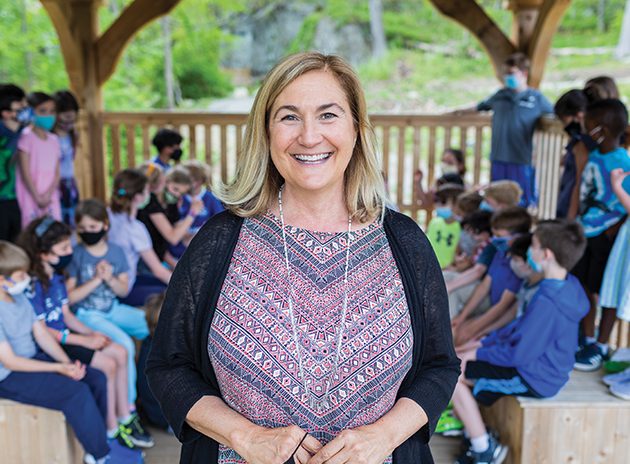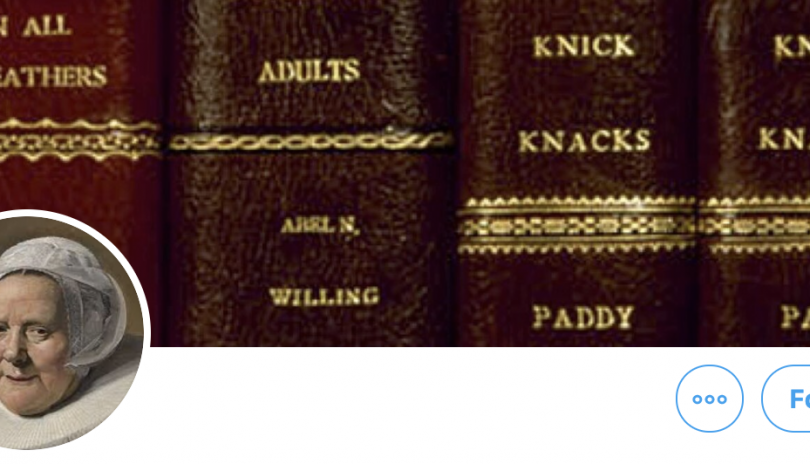A recent lower school assembly began with two second grade helpers enthusiastically coming to the stage. Their task was straightforward: one child was charged with bouncing a beanbag, and the other one was charged with bouncing a bouncy ball. We then asked the kindergarten to solve a mystery. A bouncy ball and a bean bag bounce differently when thrown to the ground, but what did this fact have to do with the story we were reading at assembly?
In the book, The Most Magnificent Thing, written and illustrated by Ashley Spires, the character has a perfect vision for a creation she is going to build; she guarantees her dog, who is also her assistant, that they are about to make the most magnificent thing. She tinkers, measures, tugs, smooths, fiddles, glues, adjusts, tweaks, fastens, and assesses her work, but time after time she thinks it is all wrong. Her frustration grows, and grows some more, and finally she explodes. Her trusty dog suggests a walk, and after a time the girl finds the strength to return to her project. She persists on the task, and in the end, she and her dog create the most magnificent thing, a scooter that allows the two of them to ride together.
Kindergarten hands shot up at the end of the story. They were still thinking about the connection to our mystery. They were excited to point out that the main character was able to bounce back like a bouncy ball, rather than landing like a beanbag.
In the book, the character finds the strength to keep working on a challenging task by using a walk and a strong relationship (even if it is with a dog) to build her resilience. At DCD, we work to give children the tools they need to build their own resilience, and we see this capacity as one of the foundations for the life-long learning we value.
I recently attended the National Association of Independent School’s conference, and had the chance to hear Dr. Brene Brown, professor at the University of Houston Graduate College of Social Work. Dr. Brown spoke about how to build courage and resilience in children. According to her research, the ability to be vulnerable, to admit what you don’t know or need help achieving, is one of the foundations for courage and resilience. When children are comfortable with the process of learning, with the uncertainty and difficulty that is a natural part of learning something new, they are far more likely to persist and find their way to a “magnificent thing.” The strong relationships that are in place at DCD, as well as the culture that celebrates the process of learning and not just the outcome, is one of the many things that make DCD magnificent.








